NORDOST THOR POWER DISTRIBUTION CENTER
| NORDOST THOR POWER DISTRIBUTION CENTER |
| At The Epicenter of Musical Pleasures |
|
|
|
February 2007 |
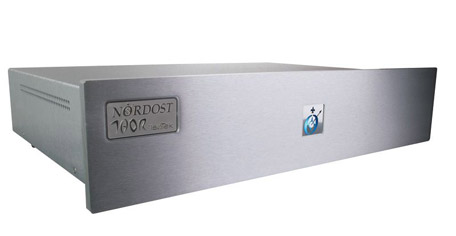
In order to best capture the essence of what the Nordost Thor Power Distribution Center accomplishes in my reference system, I must first take you to Mexico, specifically to the colonial town of Tlaxcala, about two hours drive from Mexico City. Tlaxcala is best known for its traditional running of the bulls through its narrow streets every August. To witness this wild running of the bulls through a mass of boarded streets, cheering humanity, flowing beer and retreating novice bullfighters is to witness a quintessential Mexican experience. Journeying away from Tlaxcala’s central zocalo and crowded neighborhoods, one finds fertile farms and fields whose landscape is dotted with the ruins and restorations of farm estates, or Haciendas. One such Hacienda is the Hacienda Soltepec, a gem of Spanish colonial architecture, with a beautiful open courtyard at the epicenter of the main house’s structure. The courtyard at Soltepec represents the central architectural structure around which all life at Soltepec revolves. Because of this open courtyard, you are never far from the unrestricted open sky and the natural elements in your daily pace. If there is an afternoon shower, it cascades right around your living space. The glorious yellow heat of the Mexican sun is never far off your shoulder nor is the night sky with its billions of stars above. Daily life at Soltepec is experienced and influenced by all of these elements of Nature because of the architectural feature of having an open courtyard at the heart of its living quarters.
The Nordost Thor (like the architectural design of the open courtyard at Hacienda Soltepec) is designed to be the fulcrum around which all musical life in a two-channel or multi-channel system is organized and experienced. I have come to understand that AC mains power distribution is a critical first element in building any reference listening system. I started on this path when Rick Schultz of Virtual Dynamics suggested that my first step in building my listening system was to dedicate an electrical line from fuse box to wall outlet to feed my system, and suggested replacing all existing BX cable from box to outlet with specially cryoed Virtual Dynamics BX cabling. The results of this simple and economical upgrade were astounding, particularly in the area of improved dynamic attack and transparency of soundstage. The Thor addresses the next stage of AC mains power distribution: the problem of mains noise and voltage spikes introduced by using multiple power cords from our components plugged into multiple AC outlets. The Thor offers a power distribution block where each component receives the essence of an isolated AC mains line, (separated electrically from every other component), with the goal of preserving optimal signal transfer without compression or loss.
Bricks and Mortar
 The Nordost team worked with UK mains power specialist IsoTek to design the Thor. It features IsoTek’s proprietary circuit technology (which is claimed to eliminate product cross-contamination) and Quantum Product’s Quantum Resonance Technology (“QRT”). The Thor is wired throughout with Nordost Valhalla wiring and uses silver soldering exclusively. Without disclosing proprietary details, Nordost literature informs that inside the Thor resides a complex shunt filter and circuit that is rooted in a unique distribution system leading both negative and positive conductors back to a single efficient ground source. The internal layout and external build quality of the Thor is exemplary. The gleaming steel chassis of the Thor has a thick aluminum faceplate with a blue LED in the middle and the Nordost and IsoTek logos tastefully shared. Its size is comparable to a normal shelf component and it is fitted with rubber feet as well as bushings on its base to incorporate isolation points, like the excellent Quasar Points from Nordost. Each of the six outlets around the back of the Thor are well spaced for accommodating large connectors or stiff power cords. Nordost explains that the Thor’s performance increases as the quality of input and output power cords is improved. From my auditioning, the most important upgrade was substituting a high grade power cord to connect the Thor to the wall outlet. A Valhalla power cord placed here brought the most realized sonic glory but other lesser priced power cords from Nordost (including their sensational Vishnu and Brahma lines) brought their own shares of riches to the Thor’s impact on music.
The Nordost team worked with UK mains power specialist IsoTek to design the Thor. It features IsoTek’s proprietary circuit technology (which is claimed to eliminate product cross-contamination) and Quantum Product’s Quantum Resonance Technology (“QRT”). The Thor is wired throughout with Nordost Valhalla wiring and uses silver soldering exclusively. Without disclosing proprietary details, Nordost literature informs that inside the Thor resides a complex shunt filter and circuit that is rooted in a unique distribution system leading both negative and positive conductors back to a single efficient ground source. The internal layout and external build quality of the Thor is exemplary. The gleaming steel chassis of the Thor has a thick aluminum faceplate with a blue LED in the middle and the Nordost and IsoTek logos tastefully shared. Its size is comparable to a normal shelf component and it is fitted with rubber feet as well as bushings on its base to incorporate isolation points, like the excellent Quasar Points from Nordost. Each of the six outlets around the back of the Thor are well spaced for accommodating large connectors or stiff power cords. Nordost explains that the Thor’s performance increases as the quality of input and output power cords is improved. From my auditioning, the most important upgrade was substituting a high grade power cord to connect the Thor to the wall outlet. A Valhalla power cord placed here brought the most realized sonic glory but other lesser priced power cords from Nordost (including their sensational Vishnu and Brahma lines) brought their own shares of riches to the Thor’s impact on music.
Musical Foundation
I have listened to the Thor placed in my system for many months now, and have experimented with either removing it completely from my system or substituting my previous reference power product, the Hydra 8 from Shunyata Research (my vote for Stereo Times Most Wanted Component in 2005). At the end of the day, I have come to conclude that the Thor represents the indispensable heart of my listening system, similar to how the central courtyard is the focal point for all life at Hacienda Soltepec. The Thor’s placement within my system immediately influenced every musical note reproduced, establishing a new regime of organization and coherency to every musical piece attended to. Like the open, limitless sky above Soltepec’s courtyard, the Thor ushered into my system a new, seemingly unlimited expansion of dynamics, and both height and depth to recordings that allowed for such. Also, similar to how Soltepec’s courtyard allows the sensory pleasures of Mother Nature into the everyday living spaces of its occupants, so too does the Thor bring all sorts of new sensory delights into the pleasure and exploration of my favorite recorded music.
To illustrate these points, lets explore some favorite music from Mexico and Latin America to listen to the virtues of the Thor and compare it in my system to the Shunyata Hydra 8.  First, take a listen to the soaring vocals of Regina Belle, on her gorgeous recording, Lazy Afternoon[Peak Records 8524-2] as she interprets the incomparable Brazilian composer, Antonio Carlos Jobim, in his piece “Corcovado.” Placing the Thor into the system brings a literal explosion of new dynamic energy to this piece never heard before. Specifically, we hear a lot more of the inner workings of Belle’s vocal style, not only with more clarity and inner detail but more importantly, how she builds this song with her dynamic vocal range. She literally climbs a vocal staircase, building tension and density bit by bit until she reaches a powerful, high crescendo towards the end of “Corcovado”. Without the Thor, the song loses all of this inner tension and vocal drama. It is less exciting, less emotional, less inviting in every way. The Hydra 8 brings some improvement, but there is a sense of a slight compression up top and a more restrictive feel which is completely absent from when the Thor is in place. Belle is allowed to truly soar only with the Thor in control. This particular version of “Corcovado” also involves a great many other musicians supporting Belle, including punctuations from George Duke’s keyboards and dialog back and forth from acoustic guitar and tenor sax. The Thor brings an organization and foundation to all of these colors that presents a coherent picture that is not hyped, but simply focused and secure. Without it in the system, the complexity and sorting out of this piece is just not as clear.
First, take a listen to the soaring vocals of Regina Belle, on her gorgeous recording, Lazy Afternoon[Peak Records 8524-2] as she interprets the incomparable Brazilian composer, Antonio Carlos Jobim, in his piece “Corcovado.” Placing the Thor into the system brings a literal explosion of new dynamic energy to this piece never heard before. Specifically, we hear a lot more of the inner workings of Belle’s vocal style, not only with more clarity and inner detail but more importantly, how she builds this song with her dynamic vocal range. She literally climbs a vocal staircase, building tension and density bit by bit until she reaches a powerful, high crescendo towards the end of “Corcovado”. Without the Thor, the song loses all of this inner tension and vocal drama. It is less exciting, less emotional, less inviting in every way. The Hydra 8 brings some improvement, but there is a sense of a slight compression up top and a more restrictive feel which is completely absent from when the Thor is in place. Belle is allowed to truly soar only with the Thor in control. This particular version of “Corcovado” also involves a great many other musicians supporting Belle, including punctuations from George Duke’s keyboards and dialog back and forth from acoustic guitar and tenor sax. The Thor brings an organization and foundation to all of these colors that presents a coherent picture that is not hyped, but simply focused and secure. Without it in the system, the complexity and sorting out of this piece is just not as clear. 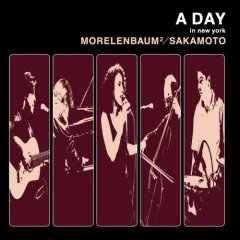 It turns less exciting, a bit homogenous and with clearly diminished space between the individual players. Sticking with Jobim (and why not?) take a listen also to the great recording of Paula and Jacques Morelenbaum and Ryuichi Sakamoto on their eclectic disc, A Day In New York[Sony 80018] and their version of Jobim’s fast paced bossa, “Chega de Saudade.” Again, the Thor brings a totally new sense of musical organization and dynamic drive to this piece. Nothing prepared me for the soaring treble of Morelenbaum’s vocals, skipping lithely through Sakamoto’s piano colors and the far-back (definitively placed) swishes of cymbals of Marcelo Costa’s percussion. Take out the Thor, and everything collapses in dramatic fashion to earth. We lose the airy space between well-defined instruments, the sense of dynamic height and width to the stage and vocals falling into a more homogenous presentation of shades of white, rather than those organized bursts of vocal color and intonation that make a performance entrancing. The same piece does much better with the Hydra 8 in place, but there again is that sense of slight compression and congestion up top, a lack of the total untethered freedom as compared to the Thor. Without the Thor in command, the magic heard (and the intimate involvement with the music) vanishes as quickly as Morelenbaum’s sly, quick bow of his cello at the very end of this little bossa.
It turns less exciting, a bit homogenous and with clearly diminished space between the individual players. Sticking with Jobim (and why not?) take a listen also to the great recording of Paula and Jacques Morelenbaum and Ryuichi Sakamoto on their eclectic disc, A Day In New York[Sony 80018] and their version of Jobim’s fast paced bossa, “Chega de Saudade.” Again, the Thor brings a totally new sense of musical organization and dynamic drive to this piece. Nothing prepared me for the soaring treble of Morelenbaum’s vocals, skipping lithely through Sakamoto’s piano colors and the far-back (definitively placed) swishes of cymbals of Marcelo Costa’s percussion. Take out the Thor, and everything collapses in dramatic fashion to earth. We lose the airy space between well-defined instruments, the sense of dynamic height and width to the stage and vocals falling into a more homogenous presentation of shades of white, rather than those organized bursts of vocal color and intonation that make a performance entrancing. The same piece does much better with the Hydra 8 in place, but there again is that sense of slight compression and congestion up top, a lack of the total untethered freedom as compared to the Thor. Without the Thor in command, the magic heard (and the intimate involvement with the music) vanishes as quickly as Morelenbaum’s sly, quick bow of his cello at the very end of this little bossa.
Like the courtyard at Soltepec bringing the sensual elements of Nature directly into daily life, so too does the Thor provide a unique lifelike immediacy to music, with all of its colors, contrasts and individual essence of the artists involved. Listen to some intimate music from Latin America and Mexico for illustration. First, there are the recordings of “Coplas” or popular folk songs from the Andes region recorded by one of my favorite sonic explorers, Todd Garfinkle of MA Recordings, in his new disc, Tonas y Tonadas [MO72A]. The Coplas here span the eclectic brilliance of the Ensemble La Chimera, employing intertwining guitars, viola de gamba, lute, spoken voice and dancing vocals up top. Putting the Thor in the mix brings out the sunshine in these pieces, organizing each instrumental color into a coherent whole and fleshing out the beauty and depth of the soundstage of this masterful recording performed in a church in Belgium. Spoken Spanish voices are clear and perfectly articulate in tone and pitch. Without the Thor, the litheness and light energy of the music is greatly diminished, the space between players decreases, the voices are less coherent and that wonderful reverberation to the back walls of the church is much less apparent.
 From the Andes to the plains of Mexico we discover the intimate folk songs performed by Marta Gomez on her beautiful Chesky recording, Entre Cada Palabra [Chesky JD 301] and the guitar of David Russell exploring the works of Mexican composer Manuel Ponce on his eclectic, Aire Latino [Telarc 80612]. Once again, the introduction of the Thor into my system provides an untethered window into the reaches of Gomez’s delicate vocals and the sensuous surprises of her intonations, with no limitations up top – like the soaring sky above Soltepec’s courtyard. Chesky’s way with natural recording spaces is also captured uniquely, as flute, clarinet, guitar and percussion are rendered in perfect coherent and natural space on stage with greater depth and surrounding air than heard before with either the Hydra 8 or with nothing controlling the power distribution. On Ponce’s “Scherzino Mexicano,” Russell brings a simple clarity to this short piece that was a joy to hear with the Thor in place, particularly illuminating how Russell builds this composition steadily from chord to chord, each note precise and reverberant.
From the Andes to the plains of Mexico we discover the intimate folk songs performed by Marta Gomez on her beautiful Chesky recording, Entre Cada Palabra [Chesky JD 301] and the guitar of David Russell exploring the works of Mexican composer Manuel Ponce on his eclectic, Aire Latino [Telarc 80612]. Once again, the introduction of the Thor into my system provides an untethered window into the reaches of Gomez’s delicate vocals and the sensuous surprises of her intonations, with no limitations up top – like the soaring sky above Soltepec’s courtyard. Chesky’s way with natural recording spaces is also captured uniquely, as flute, clarinet, guitar and percussion are rendered in perfect coherent and natural space on stage with greater depth and surrounding air than heard before with either the Hydra 8 or with nothing controlling the power distribution. On Ponce’s “Scherzino Mexicano,” Russell brings a simple clarity to this short piece that was a joy to hear with the Thor in place, particularly illuminating how Russell builds this composition steadily from chord to chord, each note precise and reverberant.
Finally, bring out the big, spacious orchestral or big band recordings like the brilliant Aaron Copland integrated Mexican folk melodies into his “El Salon Mexico” (which he composed after visiting a Mexican nightclub in 1932). Listening to the Dallas Symphony’s version with Eduardo Mata conducting [EMI 73653] brings home all of the glory of the Thor in my system. The Thor introduces a new regime of organization to all musical lines and colors. Placement of instruments is locked-down in a natural, airy and wide presentation. Those bursts of trumpets soar metallically into the stratosphere with no boundaries up top, no limitation on the power of bass drum to reverberate and decay, even at low volume. Everything from dynamic headroom to being able to hear to the very back of the stage was improved dramatically with the Thor. All of this brings a new sense of excitement, involvement and enticement into this swirling piece of Mexican folk song. 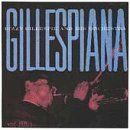 Finally, let’s not forget the penultimate salute to Pan American rhythm captured by the great Dizzy Gillespie and his Big Band in his signature, “Panamericana” recorded on Gillespiana [Verve 314519809]. This rousing romp was nothing like I had ever heard before once the Thor was installed. Every hard hitting piano run, soaring trumpet belt and furious percussive motif was distinctly heard and felt, with no confusion, no lack of dynamic power or congestion. Pure adrenaline and pure excitement – the Thor conveyed how the Band built this number from the ground up, from its furious opening percussion to Dizzy’s blast into the ozone layer.
Finally, let’s not forget the penultimate salute to Pan American rhythm captured by the great Dizzy Gillespie and his Big Band in his signature, “Panamericana” recorded on Gillespiana [Verve 314519809]. This rousing romp was nothing like I had ever heard before once the Thor was installed. Every hard hitting piano run, soaring trumpet belt and furious percussive motif was distinctly heard and felt, with no confusion, no lack of dynamic power or congestion. Pure adrenaline and pure excitement – the Thor conveyed how the Band built this number from the ground up, from its furious opening percussion to Dizzy’s blast into the ozone layer.
The Thor will remain in my system as the indispensable epicenter providing dreams of more musical pleasures and explorations to come. I highly recommend an audition of the Thor to hear the foundational changes that occur with this power distribution center as the fulcrum to any cherished two-channel or multi-channel listening system.
Nelson Brill
_____________________
Thor Specifications
IsoTek Polaris-X technology; Quantum Product’s QRT Technology
Internally wired with Nordost Valhalla
Number of outlets: 6
Type of outlets: US and EUR audio grade unswitched sockets
Standard mains inlet: IEC fused
Mains AC voltage: 190-260VAC
Total maximum current: 18A amps
Dimension: (H x W x D): 3.34” x 17.4 x 12”
Price: $3,300
Company Information
Nordost Corporation
200 Homer Avenue
Ashland, MA. USA 01721
Tel: 508-881-1116
Website: www.nordost.com
![]()
Don’t forget to bookmark us! (CTRL-SHFT-D)
Stereo Times Masthead
Publisher/Founder
Clement Perry
Editor
Dave Thomas
Senior Editors
Frank Alles, Mike Girardi, Key Kim, Russell Lichter, Terry London, Moreno Mitchell, Paul Szabady, Bill Wells, Mike Wright, Stephen Yan, and Rob Dockery
Current Contributors
David Abramson, Tim Barrall, Dave Allison, Ron Cook, Lewis Dardick, Dan Secula, Don Shaulis, Greg Simmons, Eric Teh, Greg Voth, Richard Willie, Ed Van Winkle, and Rob Dockery
Music Reviewers:
Carlos Sanchez, John Jonczyk, John Sprung and Russell Lichter
Site Management Clement Perry
Ad Designer: Martin Perry


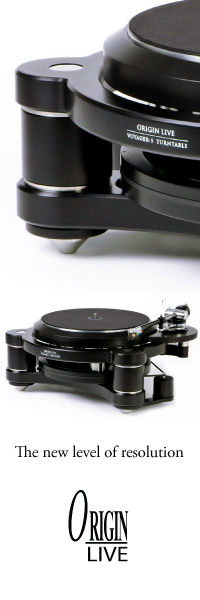
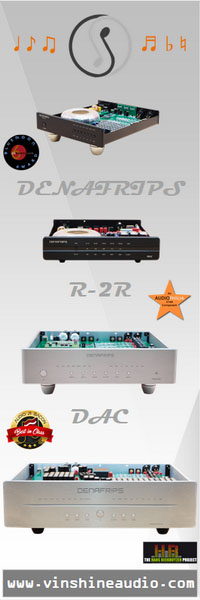
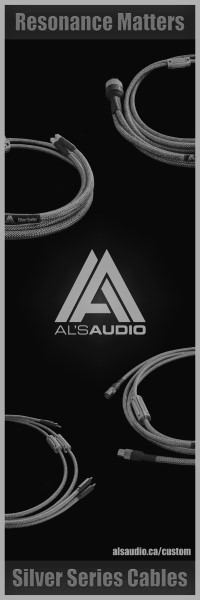
Be the first to comment on: NORDOST THOR POWER DISTRIBUTION CENTER